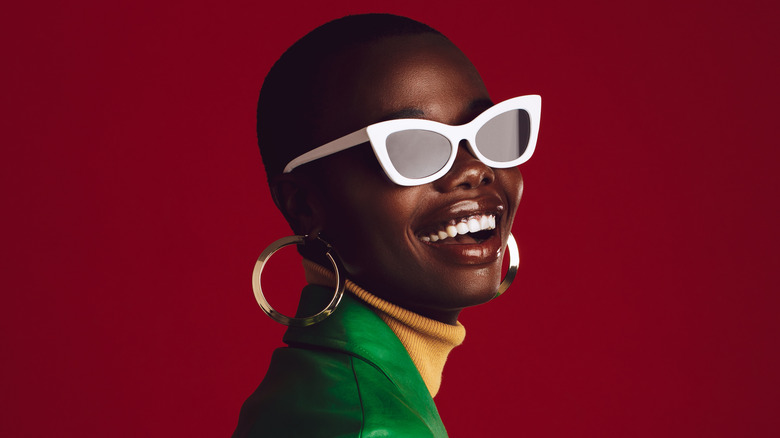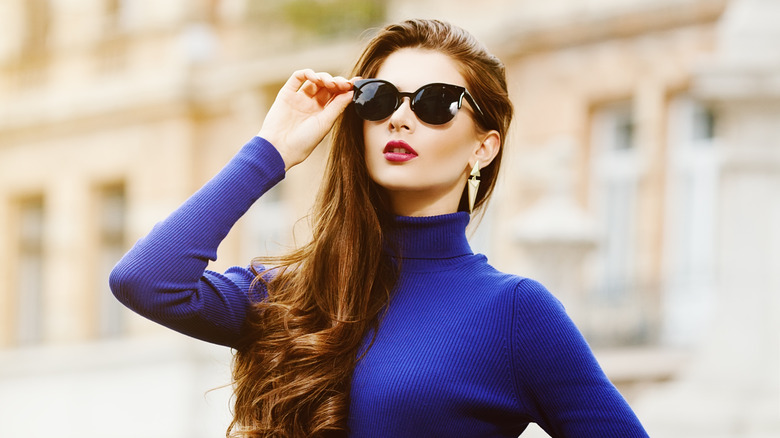How Much UV Protection Should Your Sunglasses Provide
We all know to wear sunscreen when we head outside to help protect our skin from harmful UVA and UVB rays from the sun, but do we give the same consideration to how we're protecting our eyes? If you wear sunglasses, you may think that you're good to go for eye protection, but are your sunglasses doing enough?
Your eyes are sensitive, and exposure to UV rays can end up causing cataracts and even eye cancer (via the American Academy of Ophthalmology). "The most important advice is to put on your sunglasses whenever you are outside. And put them on your kids, please," ophthalmologist Jeff Pettey explained. "Sunglasses are to the eyes what sunscreen is to the skin. Whether it's cloudy, sunny — they are an essential shield to protect your health" (via the University of Utah Health).
Not all sunglasses are created equal when it comes to UV protection. Don't just look for dark lenses; instead look for sunglasses labeled UV 400 or 100% UV protection (per Today). UV 400 means that it blocks ultraviolet waves equal to or less than 400 nanometers, which includes UVA and UVB rays (via STNGR EDGE). Note that shades labeled as 100% UV protection means basically the same thing as UV 400; they provide protection from both UVA and UVB rays (via Reader's Digest).
Sunglasses with UV protection don't have to be expensive
You may think you'll have to shell out big bucks to keep your eyes safe, but fear not. Higher price doesn't mean higher protection. In fact, 100% UV protection can be found in both cheap and pricey sunglasses — though if you're not sure if the pair you bought are really protecting your eyes from UV rays, you can take them to an eye doctor to check (via Today).
Also, keep in mind that polarization isn't the same as UV protection; polarized sunglasses help cut down on glare and don't inherently add UV protection (via the American Academy of Ophthalmology). You want to make sure that your polarized shades also have that UV protection label to really protect your eyes.
Ideally, you'll also get some big shades, even wraparound ones for maximum protection (via AAO). And even if it's cloudy, pop on those shades since cloud cover doesn't mean no harmful UV rays (per America's Best).

